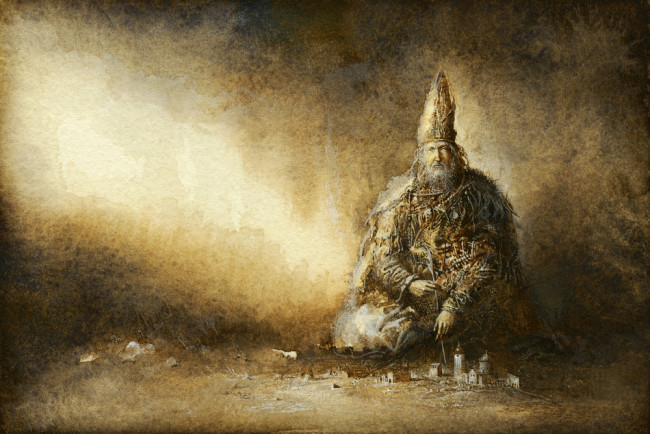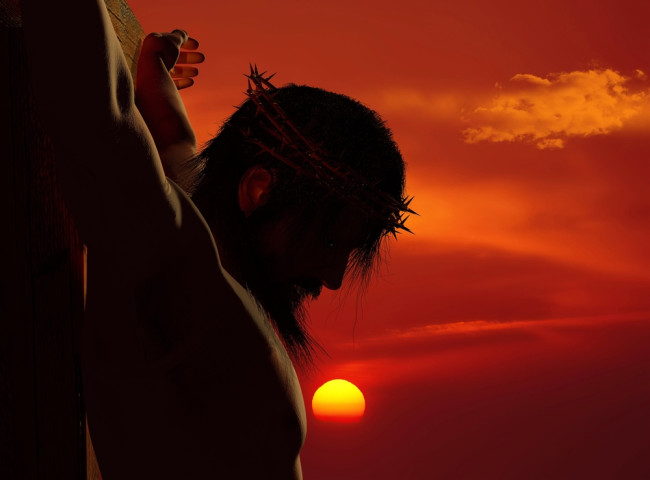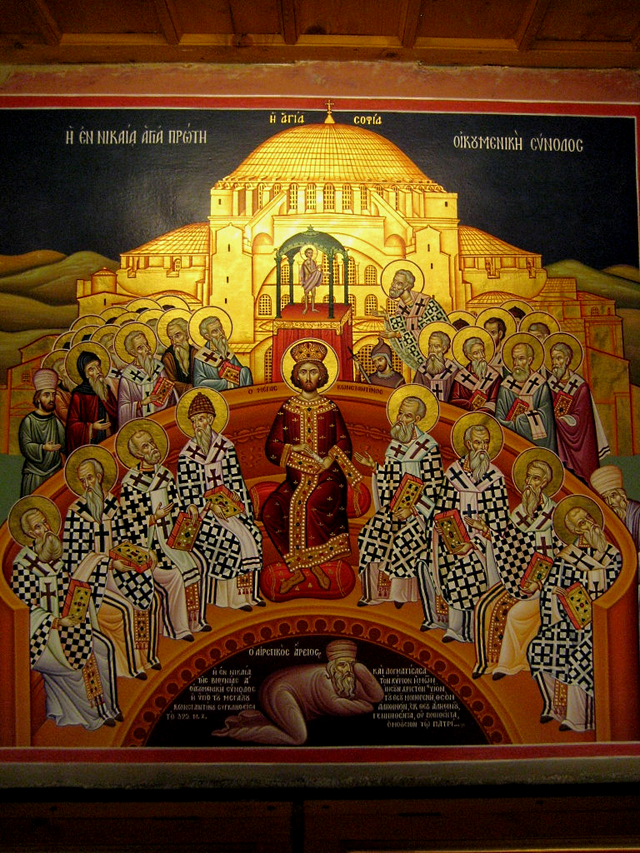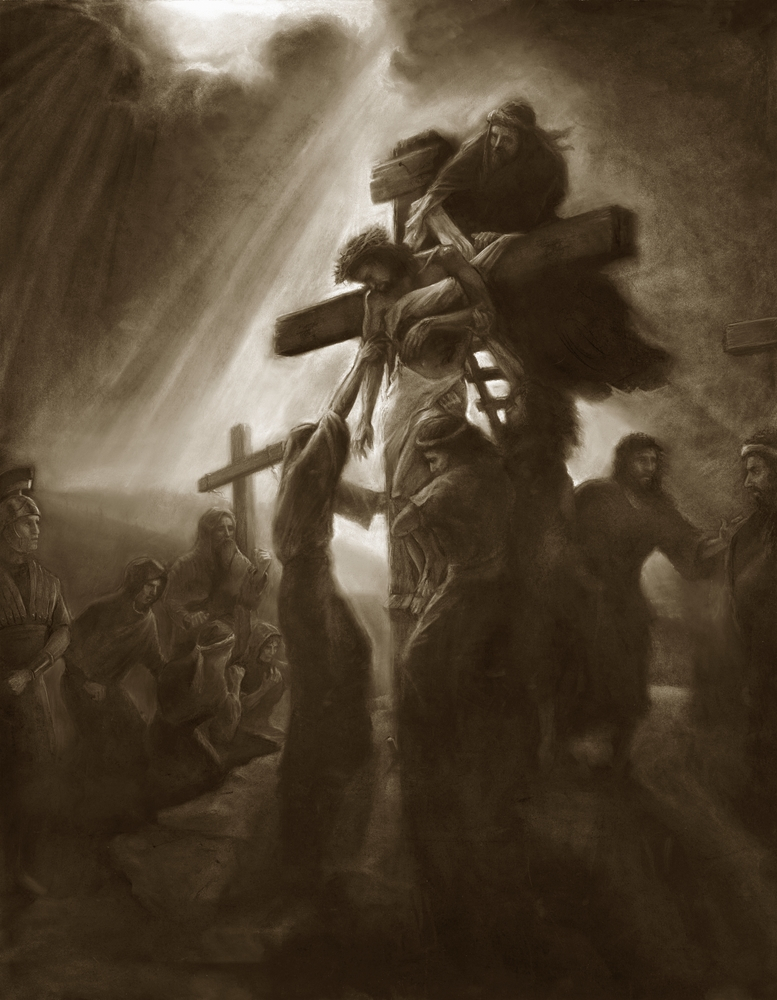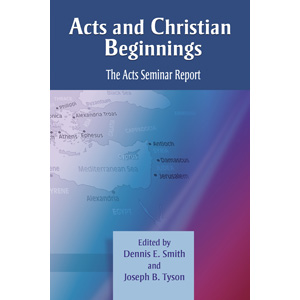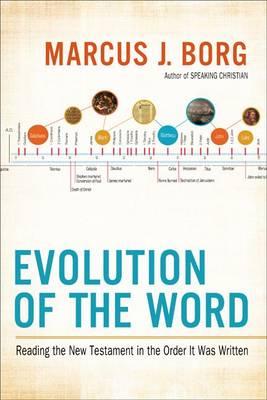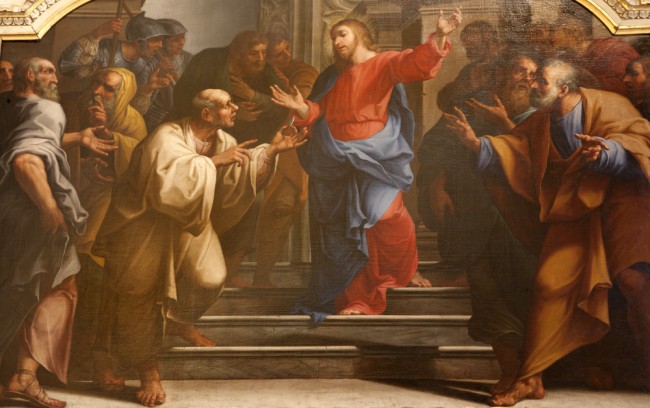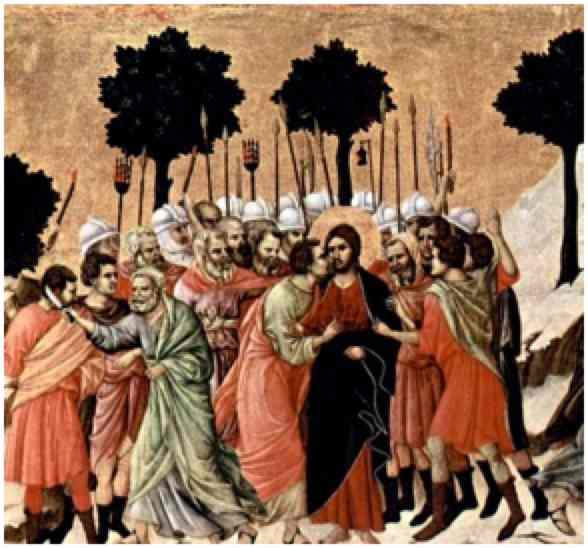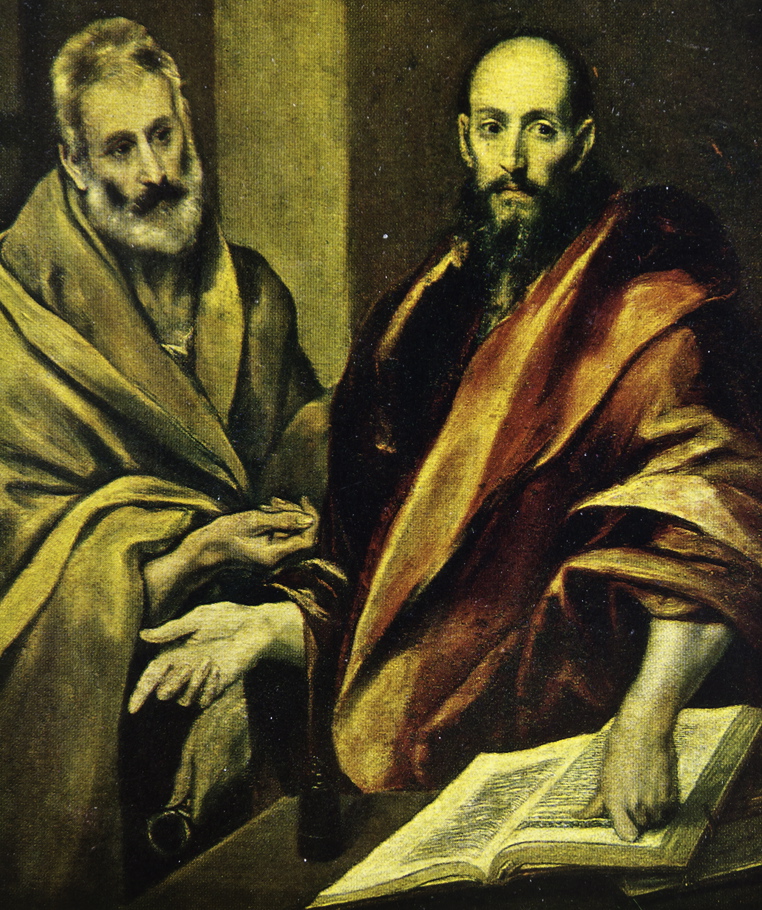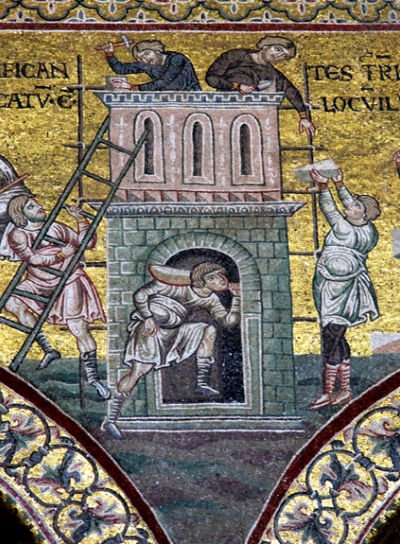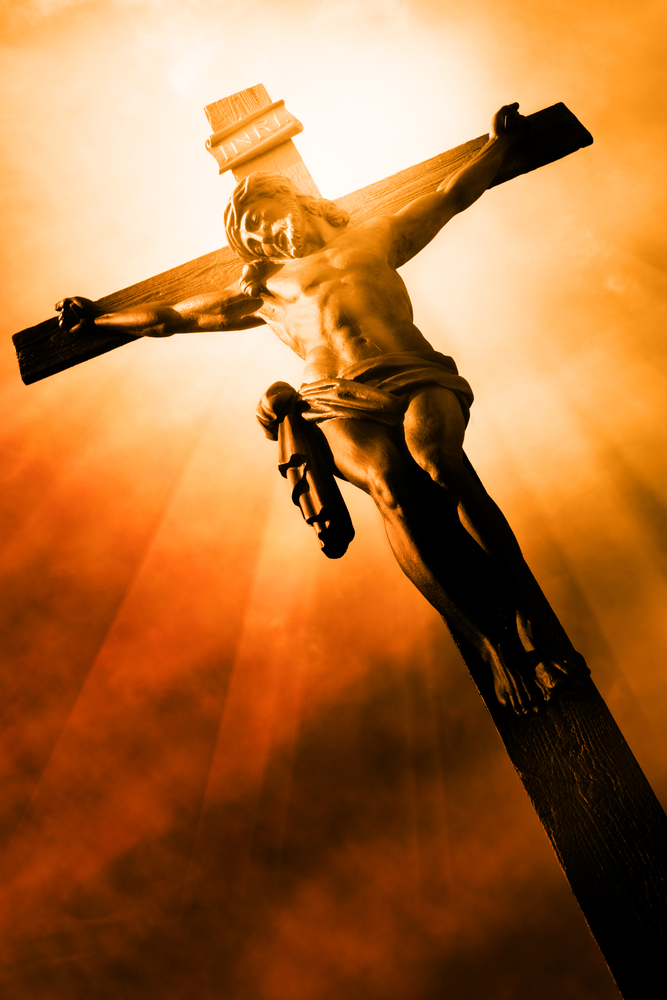A Sermon on Acts 9:36-41
“Can the ways in which we tell the stories of resurrection transform us into followers of Jesus who embody a way of being in the world that can nourish, ground, and sustain the kind of peace that the world years for?”
Eggs won't stick on my magic frying pans Spots won't grow on my wonder-creamed hands
From the Celebrating Mystery collection
Wholeness is a process rather than a static state: it is not an end to the journey but the journey itself.
From the Celebrating Mystery collection
The establishment of justice and peace, inclusiveness and awareness may seem an impossible dream, but it is only those who are motivated by such a vision who are willing to make the sacrifices necessary to create a better world.
A famous poet, William Wordsworth defined poetry as “emotion recollected in tranquility.” I wonder if it might be productive to apply that
(Excerpt from Theology From Exile Vol. III, The Year of Mark by Sea Raven, D.Min.) Acts 10:34-43; Isaiah 25:6-9; Psalm 118:14-24; 1 Corinthians
Introduction In my faith journey, I have struggled with the concept of the Trinity. Like many other followers of Jesus I suspect, I
One of the most serious theological conflicts in the history of Christianity occurred more than one thousand six hundred years ago. Known as
Hebrew Scripture’s View of Life after Death It wasn’t until after the Babylonian Exile that the Pharisees accepted the idea of heaven and
For Christians grace is God’s gift of pardon. According to William Barclay the Greek word for grace was originally a military term. When an emperor came to the throne or celebrated a birthday, he would give his troops a donatirim (donation), which was a free gift that they had not earned; it was given out of the goodness of the emperor’s heart. This idea was picked up by the Christian scripture writers when they wrote about the grace of God. Grace is something that is unearned and undeserved – unmerited pardon.
When prayers in Jesus’s name go unanswered, and when unrelenting “knocking on heaven’s door” produces no result – even when bargains are offered (“I’ll stop smoking”) – instead of confronting the possibility that God is not going to intervene, the failure is treated as a “test of faith” that “God has a better plan for me.” But the transformation of human thought is far more powerful than petitions to a discredited god. At Pentecost, the Holy Spirit, first given by John’s Jesus, descends in tongues of flames on the Christian community gathered in Jerusalem. They are empowered to tell the story of Jesus in every language of the known world. Peter quotes the prophet Joel, that everyone who calls on the name of the Lord shall be saved. Paul proclaims, “For in the one Spirit we were all baptized into one body – Jews or Greeks, slaves or free – and we were all made to drink of one Spirit.” The imagery of fire represents the outpouring of the presence of sacred being and of creative power. No magic is required.
When it comes to the existence of the devil, people normally have one of two reactions: they dismiss the devil and scoff at the idea that there is such an entity, or they exalt the devil, and attribute far more to him (or it) than is deserved. In a recent Gallup poll, 70% of Americans believe in the devil. Half of those surveyed believe that he (this evil force is most often referred to in masculine terms) is a personal force, while the other half believes he is an impersonal force. Let us see what the Bible says about Satan, the devil and the evil one.
From the Boundless Life collection
“The meek shall inherit the Earth” said Christ But what could this mean for the people today? While corp’rates and rich folk gain more and more land The poor live in slums where they’re still forced to stay.
Eschatology is the study of last things, the final events in history, the ultimate destiny of humanity, the end of the world. Major issues in eschatology include the rapture, the second coming of Jesus, the tribulation, Millennialism, and the last judgment. Most of the Christian books I have read do not seriously concern themselves with eschatology, but the Left Behind series of books made it a popular topic. All twelve novels in the series made the New York Times bestselling fiction list – note: the fiction list. Prior to the Left Behind novels of the 1990s, Hal Lindsey’s 1970s bestselling books, including The Late Great Planet Earth, were also bestsellers.
The power of life that raised Jesus is accessible and available to all people, even those who have not heard of Jesus. The risen Christ, the cosmic Christ who is Lord of all can take many forms and answer to many names. Our text says that God shows no partiality, that anyone who fears God, and that does not mean to be afraid of God, but anyone who respects and honors God, and anyone who does what is right, anyone who does what is just and good and compassionate shares in the life of the risen Christ.
So what do I mean by a sacred community or spiritual community, or as Peck would call it a true community? I refer here to an intentional community with an identifiable common purpose. Maybe that purpose is simple to grow spiritually as individuals. It is a community where one can transcend oneself and experience a sense of the interconnectedness of life. It is a community in which each member seeks to see and relate to the divine or the sacred in the other.
Judas Iscariot, the anti-hero of the story of the crucifixion, has been heaped with scorn and ridicule over the centuries. “Judas” is not used as a child’s name because it became the synonym for betrayal, for being a back-stabber. In Christian art, he is portrayed in dark, sinister tones. Events in western Christian history from the Inquisition in the fourteenth century to the expulsion of the Jews from almost every country of Europe at one time or another, to Martin Luther’s call for the burning of synagogues, to the violence and killing frenzy of the Holocaust in the twentieth century are all rooted substantially in Judas and because he was a Jew, applied to all Jews. Even his name is identical with the name by which the entire Jewish nation was known… Judas is simply a Greek spelling of Judah.
Acts was long thought to be a first-century document, and its author Luke to be a disciple of Paul—thus an eyewitness or acquaintance of eyewitnesses to nascent Christianity. Acts was considered history, pure and simple. But the Acts Seminar, a decade-long collaborative project by scholars affiliated with the Westar Institute, concluded that it dates from the second century. That conclusion directly challenges the view of Acts as history and raises a host of new questions, addressed in this final report.
The New Testament in the Order the Books Were Written
the full-text of the New Testament—and one of the only Bibles organized in chronological order and including explanatory annotations that give readers a more informed understanding of the Scripture
Paul endorsed the Roman status quo, politically. He made the real issue identification with a descended (divine) savior, spiritually raised and soon to return. The Jerusalem group shared the last point but emphatically not the first two of Jesus' divinity nor acquiescence to Roman rule. Their expected Messiah (dramatically shifted after his death to a returning one) would establish peace with Jewish centrality and abolish the MILITARY dominance of other kingdoms but not the existence of other nations.
A Gospel of Non-violence in a Violent World
We wrestle with the stark reality of the culture of gun violence in which we find ourselves, and a gospel message for the progressive Christian that is inherently non-violent. Advocates for one side of a heated debate insist the only way to stop a bad guy with a gun is a good guy with a gun; which is only true if the good guy is faster on the draw and a better aim. To assert the good guy always wins is, of course, a lie. There are plenty of examples of murder and mayhem in that compendium of stories we call the Bible. In some stories the good guy wins. In others, they lose; particularly those who choose the way of non-violent resistance unequivocally taught and demonstrated in the words and deeds of the Galilean sage and healer. It’s not a matter of a showdown to see who wins with a more forceful argument. Far from naïve, impractical and unrealistic, a non-violent response may be the only thing to break the perpetual cycle of violence. But how?
But the loss of their key center and probably the main leadership and overall strength of the movement opened the way for Pauline Christian influence which is clear particularly in Luke (both his Gospel and Acts).
So in a round-about way, Gamaliel, as quoted by Luke, is giving us a powerful clue about what kind of literature the Gospels are — a unique mix of a few core historical events with lots of theological overlay, all blended with a good dose of the kinds of stories of miraculous signs that we know were common and sometimes persuasive in that day. And not surprisingly…. They still are today!
Giving Voice to Intolerance in an Age of Pluralism
The back story to the Tower of Babel myth is that the orignial plans called for anything but babble. But where once humankind may have all spoken the same language with one unifying plan to build a place all could dwell and abide one another, it has long since ever been the case. “We live in a pluri-verse, not a uni-verse,” says Raimon Panikkar. Ours is a pluralistic age in which we have many different and opposing – even sometimes mutually incompatible -- worldviews that threaten planetary human coexistence. In the midst of such chaos and confusion, how can we tolerate each other’s differences? Or, some might ask, should we even try? I consider myself a very tolerant person! The only people I cannot abide are ignorant and intolerant bigots! Does that make me intolerant as well, or merely principled? What would constitute a forbearance of principled intolerance, with a leniency of spirit? Here's John Bennison's latest Commentary from Words and Ways.
I've titled this as about the Resurrection, which is just one part of a complex of beliefs... but let's return and end there... What similarities or differences do you see in Paul's Resurrection statements and beliefs and those of the early Jerusalem Jesus-followers?
Basically, the Church was developing within a strongly partiarchal and heirarchical society.... Despite the freshness and hopefulness we see in Jesus and Paul, it is not surprising that male domination would soon assert itself and claim exclusive leadership privileges. Maybe women could lead among women, of course... no real complication or threat there.
Are you religious? Your answer will depend a lot on what your questioner meant by the concept of “religion” and how you view this concept.
To be a progressive Christian involves affirming “God in all things and all things in God.” Progressive theology asserts that we live in a lively, evolving, and visionary universe in which God’s presence touches every moment and every life.
found at SpiritualityandPractice.com
Begin your meal by holding hands and saying to the person on your right: "You are the temple of God and the Holy Spirit dwells within you."
Pentecost is perhaps the first festival appropriated from an ancient tradition to serve the purposes of the new Christian Way.


